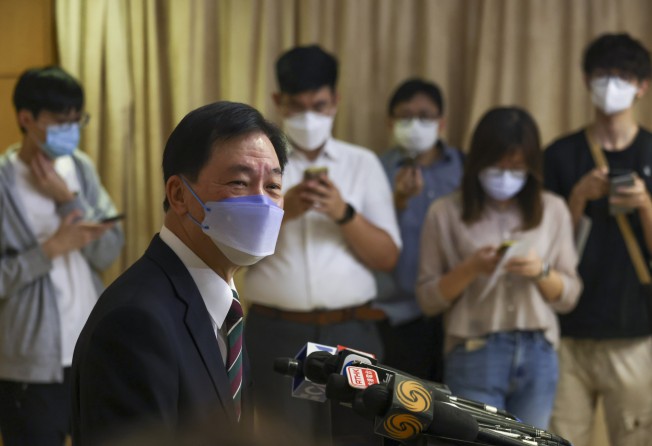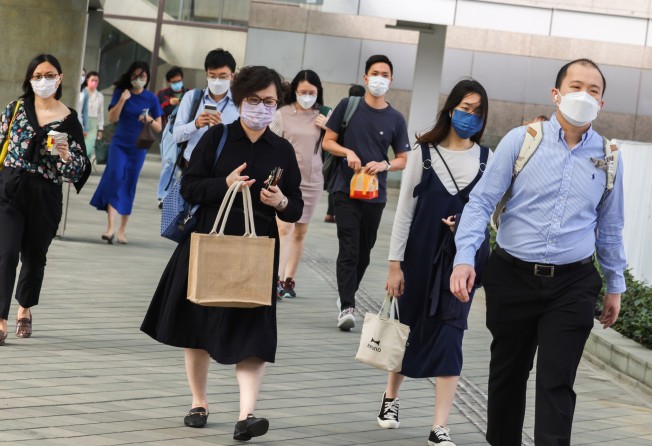
Numbers do not add up in proposed pay leap for Hong Kong civil servants
- With senior staff in line for rises of up to 7.26 per cent, some private companies that use such awards as reference may struggle to match them in a city slowly recovering from the most difficult of times

The annual pay trend survey of private companies helps the government set rates for civil servants from the lowest to the highest paid. But it matters more than that.
Civil service pay adjustments in turn serve as a wage-fixing reference for the private sector. It is watched carefully by economists, business and employees, public and private.
The latest report of the Pay Trend Survey Committee is controversial on two counts. One is a generous 7.26 per cent increase proposed for the most senior government ranks.
The other is that many small and medium-size companies may struggle to match the suggested rises.
The increases proposed for junior and medium-ranking civil servants are 2.04 per cent and 4.55 per cent respectively. It is not unusual for the biggest rise to be awarded to the most senior level.

What sets this instance apart is that 7 per cent-plus would be the highest since the handover in 1997, and that the timing seems to have little regard for public perception, or the concept of shared sacrifice.
The city is only tentatively returning to normal life from pandemic hardships. Anti-Covid measures, compounded by the Ukraine war, have crunched economic growth.
Unemployment is rising; so is inflation. In normal times officials may try to justify the highest increases for the highest paid with the need to be competitive with the private sector for top talent.
But these are far from normal times. In considering the rises it will recommend to the Executive Council, the government must be careful not to miscalculate the public mood.
How did this happen? Of about 160 companies invited to take part in the survey, 111 responded.
If, as human resources experts understand, those that did not take part included many seriously affected by Covid, the committee’s report may not have been a realistic reflection of capacity to pay. The government should consider calls for a revamp of the formula used in the survey.
According to the experts, it places too much emphasis on top firms that may have inflated salaries to head off an exodus of talent. They also believe year-end bonuses or double pay should not be factored in because civil servants already enjoy lucrative packages.
That said, private firms that can afford it should accept the survey as an indication to at least give staff a realistic pay rise to fight inflation.
How officials deal with the pay survey will not only affect perceptions of the government, but also those of the civil service, given that it already faces negative sentiment over its performance in the fight against the pandemic and in other areas. They should carefully review the result in the light of public opinion and the legitimate expectations of civil servants.
They must be realistic to strike the right balance at such a critical juncture for recovery from one of the most difficult periods in the city’s peacetime history.